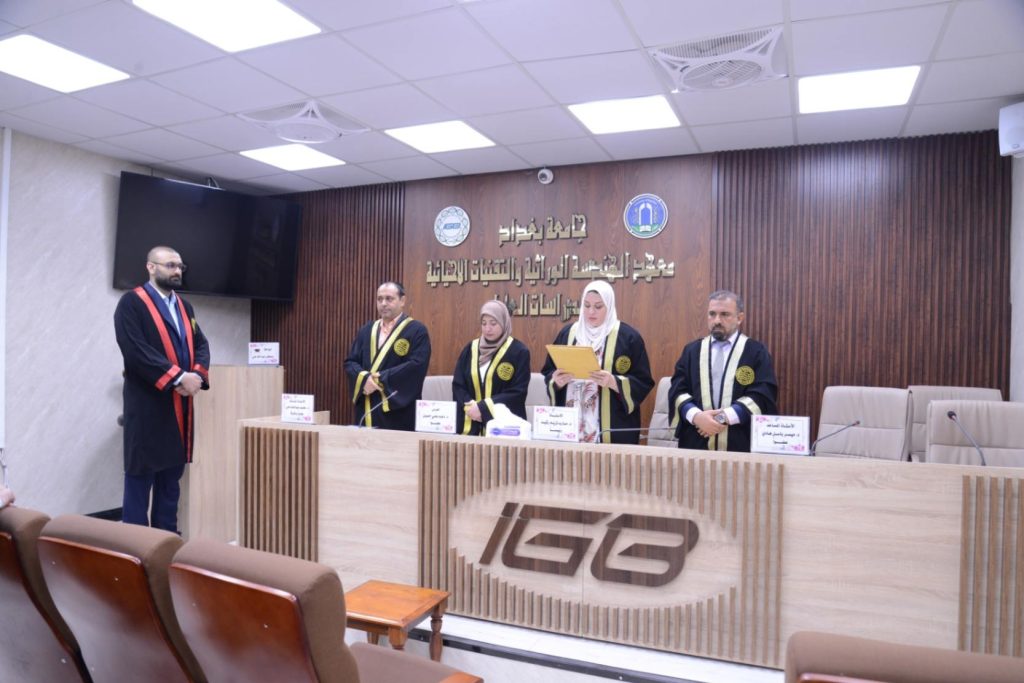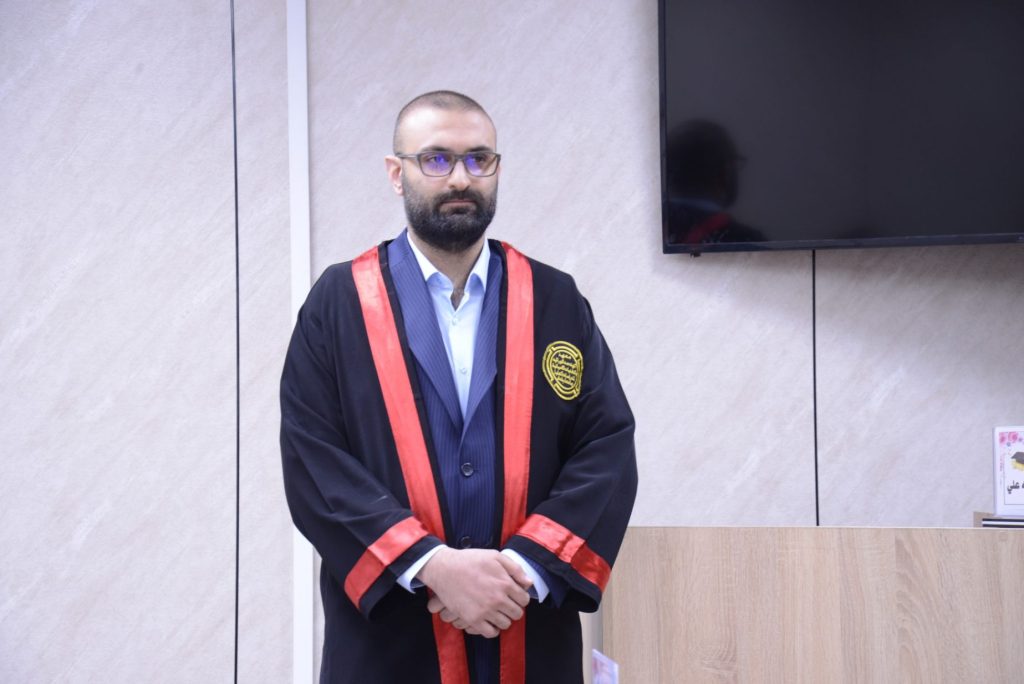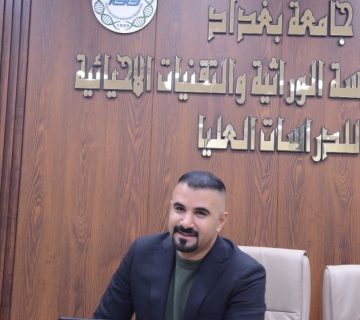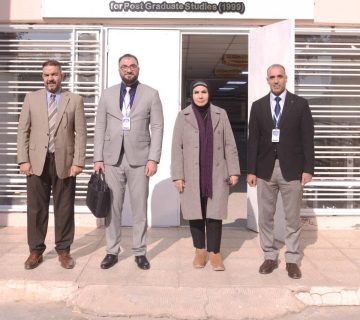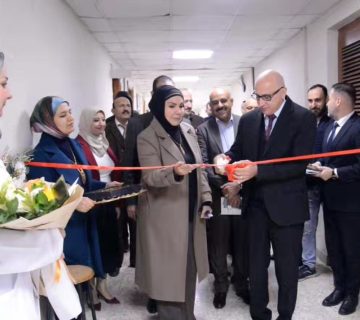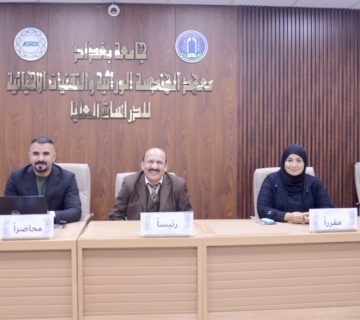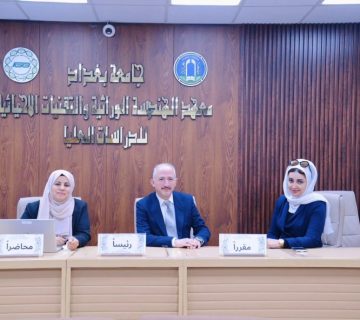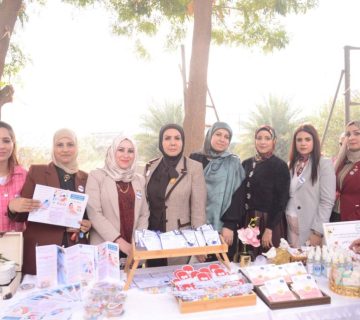The Institute of Genetic Engineering and Biotechnology for Postgraduate Studies at the University of Baghdad discussed the master’s thesis of student Mustafa Abdullah Ali, titled:
“Study of Mesenchymal Stem Cells from the Umbilical Cord and the Umbilical Cord Insertion Region in Cesarean Births in Iraq.”
The research was conducted under the supervision of Assistant Professor Dr. Muhammad Abdul Malik Ali.
Study Objectives
The study aimed to isolate and culture two groups of stem cells obtained from the umbilical cord and the point of connection between the umbilical cord and the placenta. It also aimed to compare the levels of stem cells using quantitative polymerase chain reaction (qPCR) to evaluate the expression of stem cell markers (CD90, CD73, and CD105) and assess their osteogenic differentiation ability by introducing differentiation factors.
Key Findings
🔬 The study detected the presence of mesenchymal stem cells in the placental plate on the fetal side of the placental tissues, showing promising results through gene expression evaluation.
It also identified the presence of hematopoietic-like stem cells within the placental plate on the fetal side of the placenta. Gene expression analysis revealed an initial downregulation of mesenchymal stem cell markers after adding osteogenic differentiation factors to LG-DMEM on the sixth day of culture.
🧬 The study confirmed that the placenta is a valuable source of both mesenchymal and hematopoietic stem cells, depending on the specific region from which they are isolated.
Recommendations
- Comparative studies should be conducted to evaluate similarities and differences in the abundance and characteristics of mesenchymal stem cells from different regions of the placenta and umbilical cord in humans. This will enhance our understanding of their unique properties and potential applications in regenerative medicine.
- Enzymatic methods should be improved to enrich placental mesenchymal stem cells, as they have proven more effective compared to mechanical methods, which may stress the cells and affect their viability.
- Encouraging and supporting stem cell research initiatives is essential, given their vast potential for developing stem cell banks, which could serve as valuable resources for cellular therapy and advanced medical research in Iraq.
